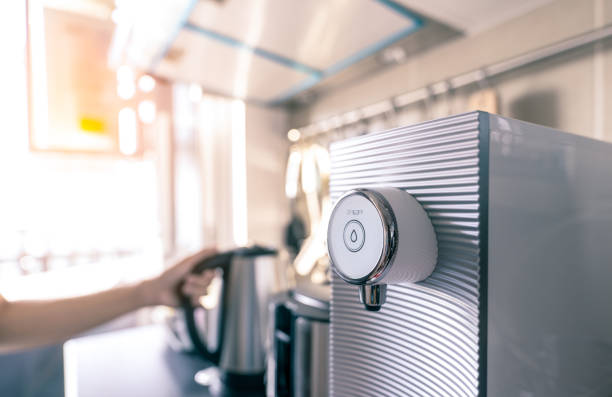Clean Water Starts at Home: What You Need to Know About Residential Filtration
In many parts of the world, including areas with access to treated municipal water, concerns about the quality of tap water continue to grow. Issues such as aging infrastructure, chemical contamination, and microbial threats make it difficult to guarantee that the water flowing from your faucet is entirely safe. That’s where installing a water filter for home becomes essential. Beyond simply improving the taste and smell of water, filtration systems can dramatically reduce exposure to harmful contaminants and support healthier living for your entire household.
The Science Behind Home Water Filtration
Home water filtration systems are designed to target and remove a wide range of impurities that may be present in your tap water. These systems often use a combination of methods, including physical filtration, chemical absorption, and in some cases, biological treatment. The most common filtration technologies include activated carbon, which traps chlorine and organic compounds, and reverse osmosis, which filters out dissolved solids such as lead, fluoride, and nitrates. More advanced units may include UV treatment for bacteria and virus disinfection. A properly selected water filter for home will address the specific contaminants that are most likely to be found in your region’s water supply.
What’s Really in Your Tap Water?
Although water treatment plants are responsible for ensuring that water meets public health standards, trace contaminants can still remain or re-enter your water on the journey from the plant to your home. Common culprits include chlorine, which is added to disinfect water but can create harmful byproducts; lead and copper, often leached from older plumbing systems; as well as microbial contaminants such as E. coli and coliform bacteria. Even substances like pharmaceuticals, pesticides, and industrial runoff have been detected in tap water samples. Installing a water filter for home can provide peace of mind by significantly lowering these risks and delivering water that’s safe and refreshing.
Benefits Beyond Just Drinking Water
The advantages of installing a home filtration system extend far beyond what you drink. Filtered water improves the quality of food and beverages when used in cooking, enhances the taste of coffee and tea, and reduces mineral buildup in kettles, coffee makers, and other appliances. Whole-house filtration systems also help protect your skin and hair from harsh chemicals during showers and baths, especially in homes with high chlorine levels or hard water. Over time, using filtered water can lead to better hydration, fewer skin irritations, and longer-lasting plumbing fixtures.
Choosing the Right System for Your Needs
There are several types of systems available, and the best choice depends on your water quality and consumption habits. A point-of-use system like an under-sink or countertop unit is ideal for those primarily focused on improving drinking water. On the other hand, whole-house filtration systems provide protection at every tap, which is particularly useful for larger families or homes with hard water. When selecting a water filter for home, consider whether you need to address chemical contaminants, heavy metals, biological threats, or all of the above. You should also factor in the cost of replacement filters, ease of installation, and certifications from credible organizations to ensure performance and safety.
Maintenance and Lifespan: What to Expect
Like any household appliance, water filtration systems require regular maintenance to function properly. This often includes replacing filter cartridges at intervals recommended by the manufacturer anywhere from three months to one year, depending on the model and your water usage. Some advanced systems come with indicators to let you know when maintenance is due. Neglecting routine upkeep can lead to diminished performance or even contamination, so staying on top of maintenance schedules is essential. With proper care, a high-quality water filter for home can provide reliable service for many years.
Debunking Water Filtration Myths
There are several misconceptions that prevent people from investing in home water filtration. One of the most common is the belief that bottled water is safer, when in fact bottled water is less regulated than municipal supplies and often sourced from the same systems. Others worry that filtration removes beneficial minerals, but most systems retain essential elements like calcium and magnesium. Some assume filtration systems are too expensive or difficult to install, yet modern units come in a variety of price ranges and are often designed for DIY setup. These myths can easily be overcome by doing a little research and understanding your water needs.
FAQs
How can I find out what’s in my tap water?
You can request a water quality report from your local water supplier or use a home water testing kit to identify common contaminants such as chlorine, lead, and bacteria.
Do I need a professional to install a filtration system?
It depends on the system. Countertop and under-sink models are usually DIY-friendly, while whole-house systems may require a plumber for proper installation.
Will a filtration system reduce water pressure?
Not significantly, if the system is properly sized for your home. High-quality systems are designed to maintain strong water flow while filtering effectively.
How often do filters need to be changed?
This varies by system and usage, but most filters should be replaced every 3 to 12 months. Always follow the manufacturer’s instructions for best performance.
Can one system handle both chemical and microbial contaminants?
Yes, some multi-stage systems combine carbon filters, reverse osmosis membranes, and UV sterilizers to tackle a wide range of impurities in one setup.
Conclusion
Whether you’re looking to improve the taste of your drinking water, safeguard your family’s health, or reduce the wear and tear on your appliances, a water filter for home is a smart and worthwhile investment. With multiple options available to suit every budget and household size, finding the right system is easier than ever. Clean, filtered water supports better health, tastes great, and offers peace of mind in a world where water quality can’t always be taken for granted. Take the step toward safer living starting with the water you use every day.
Author Bio
Ahmed Al-Zayani is a water safety consultant and home filtration expert with Pure Bahrain. With a passion for improving residential water quality across the region, he provides trusted guidance on selecting the best solutions for clean, healthy living. Learn more about effective filtration systems at Pure Bahrain.




